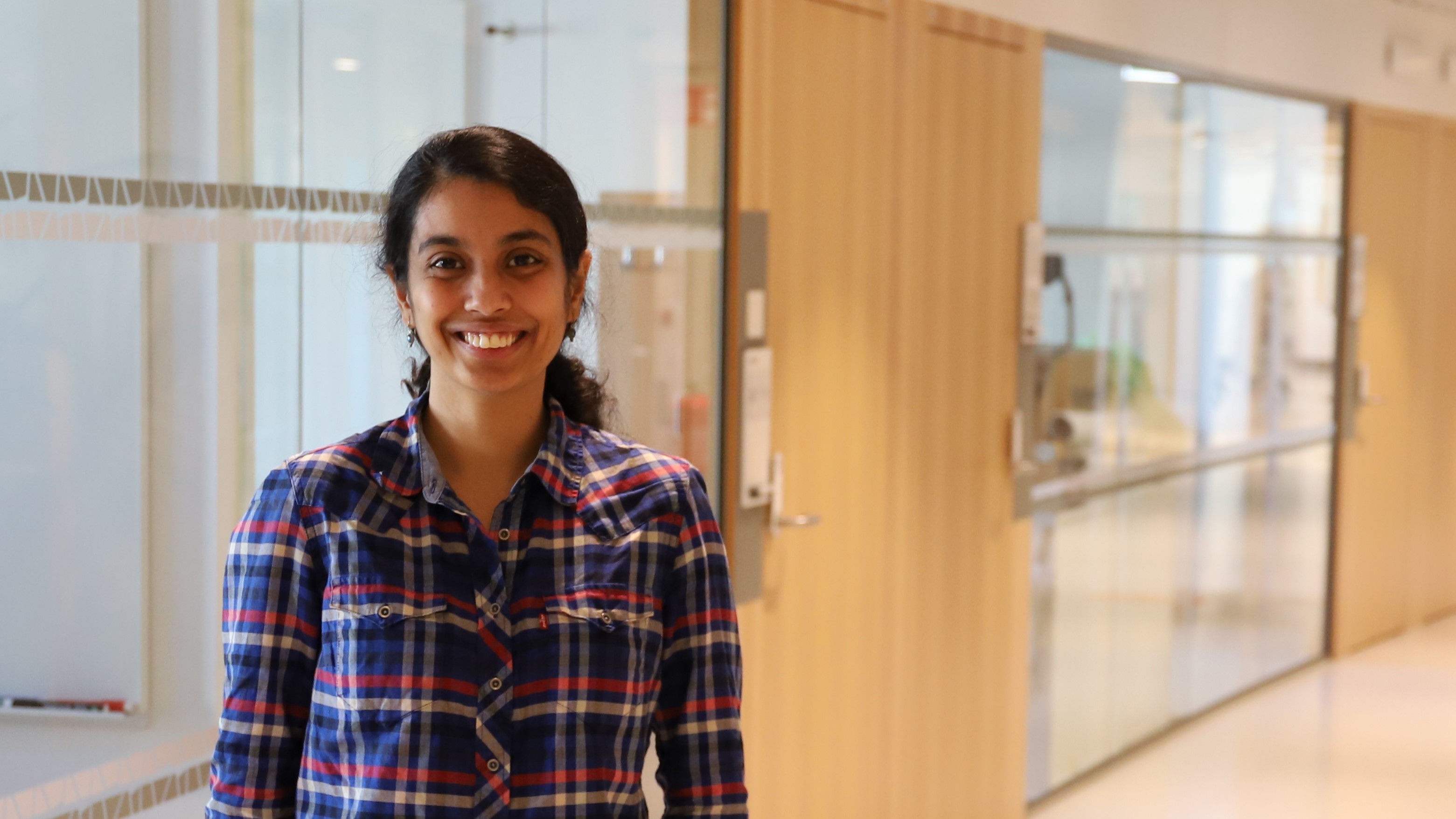Meet assistant professor Vaishali Adya

Assistant Professor Vaishali Adya is an expert in gravitational wave research and quantum optics. She is dedicated to advancing quantum communication networks and biosensing technologies. Her collaborative work extends across KTH, the Wallenberg Centre for Quantum Technology (WACQT), and Nordita.
Originally from India, Vaishali completed her studies there up to the master's level before moving to Germany for her PhD at the Max Planck Institute for Gravitational Physics in Hannover. Her PhD research focused on designing control systems for current and future gravitational wave detectors, particularly the Einstein Telescope, a third-generation detector under development in Europe.
After her PhD, she completed a postdoctoral fellowship at the Australian National University, where she worked on developing squeezed light technology for applications beyond gravitational wave detection. This experience sparked her interest in finding more efficient ways to generate squeezing, leading to collaboration with Katia Gallo ’s group at KTH, known for their expertise in fabricating devices using Lithium niobate on insulator platforms, which hold great promise for various quantum sensing and communication experiments.
What possibilities do you see in taking on this position?
"Taking on a position as an assistant professor through WACQT (Wallenberg Centre for Quantum Technology) at KTH has been both challenging and exciting. The cross-disciplinary environment offered by both WACQT and KTH has been extremely beneficial for applying my expertise in controls and quantum optics to various out-of-lab applications. For instance, I’m involved in building quantum communication networks (NQCIS) and conducting precision sensing experiments for biosensing."
"The collaboration between WACQT, WINQ (Wallenberg Initiative for Networks and Quantum Information) and Nordita (Nordic Institute for Theoretical Physics) creates a highly synergetic environment where we can have interactions that open new avenues for developing theoretical work alongside experimental work. Immediately after the workshop for new faculty that was organized at Nordita earlier this fall, we began discussing how to model various experiments, enabling us to establish a common language and framework. I anticipate that national initiatives, such as the Swedish Quantum Agenda and the Nordic Quantum Initiative, will further strengthen many interdisciplinary collaborations."
How can WACQT/WINQ/Nordita help you realise your ambitions?
"It is a very positive environment where collaboration is highly encouraged. Beyond traditional scientific work, people actively seek common ground, and a shared language to understand each other’s perspectives, creating opportunities for innovative ideas. All three entities—WACQT, WINQ, and Nordita—have slightly different expertise and goals, but they share a common mission: advancing quantum technologies at all levels, from undergraduate and graduate teaching to theoretical, technological, and experimental breakthroughs in various simulations and experiments. What this constellation gives me is a collaborative, supportive infrastructure and foundation to build my own contribution while at the same time building collaborative bridges to other research groups and ideas."
How do you want to contribute to a creative quantum environment?
"I would like to foster a creative, self-sustaining environment in which everyone at WACQT-WINQ-Nordita and the broader quantum ecosystem can thrive. For example, we could coordinate teaching and course content across disciplines at the undergraduate level, allowing for guest lectures and modules related to our expertise to create a cohesive precision sensing and communication curriculum. Additionally, seminars and workshops organized by PhD students could enhance collaboration at junior levels."
"In the OzGrav community where I previously worked, cross-university supervision for PhD students enabled PIs to collaborate on interdisciplinary projects. I am also considering a cross-trio mentorship program. I have been fortunate to have advisors and mentors from various career stages who provided invaluable support, and my current colleagues and collaborators are always ready to assist with grants, teaching, or career guidance. I believe this kind of support is very much underrated, and I aim to pay it forward, inspired by the wonderful examples I’ve experienced."
Text: Marie Hjeltman
